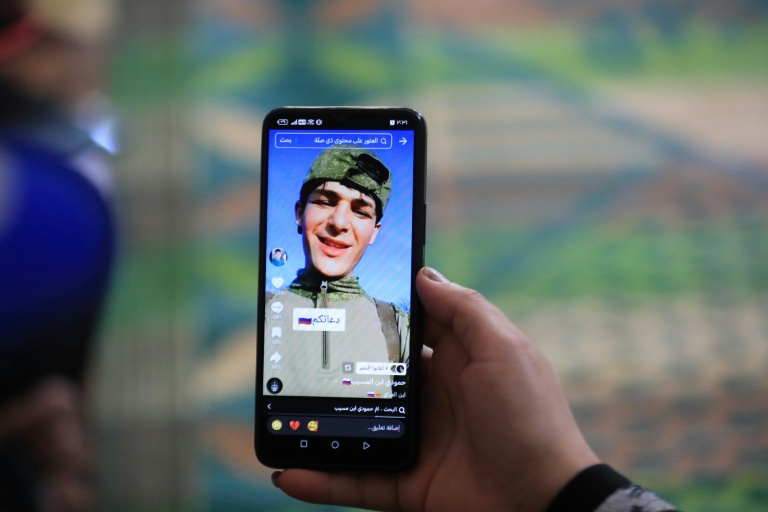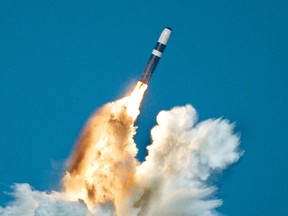Science
Iraqi Youth Lured to Fight for Russia Amid Economic Desperation

Young Iraqis, drawn by promises of financial stability, are increasingly enlisting to fight for Russia in Ukraine. One such individual, Mohammed Imad, shared his last moments on social media while clad in military fatigues and surrounded by a battlefield. His final TikTok post, made in May, featured a caption that read, “Pray for me,” alongside a Russian flag. Since then, his family has faced a harrowing silence, grappling with the uncertainty of his fate.
Mohammed’s mother, Zeinab Jabbar, told AFP that her son left for Russia without informing his family, enticed by offers of a monthly salary of $2,800—four times what he could earn in the Iraqi military—and a potential sign-up bonus of up to $20,000. “We have had enough,” Jabbar lamented, reflecting on the cycle of war that has afflicted Iraq for decades.
The current economic climate in Iraq has left many young people jobless, with one in three unable to find work. This dire situation has made the allure of joining foreign military forces, particularly Russia’s, seem appealing. Social media platforms, including TikTok and Telegram, play a pivotal role in this recruitment process, where influencers actively promote the benefits of enlisting.
According to reports, many Iraqis have been lured into joining the Russian army, often via TikTok. Relatives of four men from impoverished backgrounds shared their experiences, revealing that three of them are currently missing. A fourth was returned to his family in a body bag. One of the influencers, Abbas Hamadullah, known as Abbas al-Munaser, has built a following by sharing his experiences in the Russian military and providing guidance to potential recruits. “Give me an Iraqi soldier and a Russian weapon, and we will liberate the world from Western colonialism,” he proclaimed in one of his posts.
Recruitment Strategies and the Human Cost
The recruitment efforts target not only Iraq but also other Middle Eastern nations, including Syria, Egypt, and Algeria. The channels on Telegram have adapted their approach, aiming at a younger audience. They provide resources such as military terminology in Russian, further facilitating the enlistment process.
Families of missing recruits are left in anguish. Mohammed’s sister, Faten, spends hours on social media, seeking information about her brother. She has received conflicting reports about his status, including speculation that he might have fallen ill. Tragically, al-Munaser eventually informed her that Mohammed had been killed by a Ukrainian drone near Bakhmut, a revelation that plunged her family into mourning.
Another young man, Alawi Motlak, also vanished after traveling to Russia. His father reported that Alawi had been in constant contact until his disappearance. “I told him to come back,” his father recalled, but Alawi was determined to fulfill his military contract. The influence of social media and the promise of a better life in Russia overshadowed the dangers of warfare.
Munasar himself expressed mixed feelings about his experience in the Russian army, which he joined in 2024. While he now possesses a Russian passport and sends his family approximately $2,500 a month, he acknowledges the inherent risks. “There is death here,” he stated, highlighting the advanced technology used in modern warfare compared to past conflicts.
The Broader Implications for Iraq
The phenomenon of Iraqi fighters joining Russian forces raises significant concerns within Iraq, a nation still reeling from decades of violence. Ukraine’s ambassador to Iraq, Ivan Dovhanych, noted that many of these recruits are not fighting for an ideology; rather, they seek employment opportunities. The Iraqi government has maintained a neutral stance on the conflict, and there are fears that young men fighting for Russia could bring shame to the nation.
In September, a court in southern Iraq sentenced an individual to life imprisonment for human trafficking related to recruitment for foreign wars, specifically accusing him of sending individuals to fight for Russia. Furthermore, Iraq’s embassy in Moscow has issued warnings about attempts to lure or coerce Iraqis into joining the conflict.
Families of recruits face societal stigma, often resulting in a sense of shame when their loved ones die abroad. One relative recounted how a family had to bury a recruit in secret to avoid community disapproval. “It is heartbreaking. A boy died abroad and was buried in secret,” he lamented.
The tragic stories of young Iraqis drawn into conflict illustrate the desperate circumstances many face, driving them to seek opportunities in a foreign war. As the situation evolves, the implications for Iraq’s youth and their families remain profound, raising urgent questions about economic stability, national identity, and the future of a generation caught in the crossfire of international conflict.
-

 World4 months ago
World4 months agoScientists Unearth Ancient Antarctic Ice to Unlock Climate Secrets
-

 Entertainment4 months ago
Entertainment4 months agoTrump and McCormick to Announce $70 Billion Energy Investments
-

 Lifestyle4 months ago
Lifestyle4 months agoTransLink Launches Food Truck Program to Boost Revenue in Vancouver
-

 Science4 months ago
Science4 months agoFour Astronauts Return to Earth After International Space Station Mission
-

 Technology2 months ago
Technology2 months agoApple Notes Enhances Functionality with Markdown Support in macOS 26
-

 Top Stories3 weeks ago
Top Stories3 weeks agoUrgent Update: Fatal Crash on Highway 99 Claims Life of Pitt Meadows Man
-

 Sports4 months ago
Sports4 months agoSearch Underway for Missing Hunter Amid Hokkaido Bear Emergency
-

 Politics3 months ago
Politics3 months agoUkrainian Tennis Star Elina Svitolina Faces Death Threats Online
-

 Politics4 months ago
Politics4 months agoCarney Engages First Nations Leaders at Development Law Summit
-

 Technology4 months ago
Technology4 months agoFrosthaven Launches Early Access on July 31, 2025
-

 Top Stories2 weeks ago
Top Stories2 weeks agoFamily Remembers Beverley Rowbotham 25 Years After Murder
-

 Top Stories6 days ago
Top Stories6 days agoBlake Snell’s Frustration Ignites Toronto Blue Jays Fan Fury





















